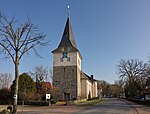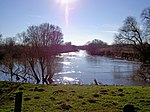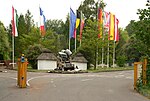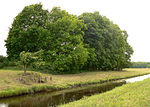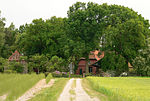Ahlden House
1549 establishments in the Holy Roman EmpireBuildings and structures in HeidekreisCastles in Lower Saxony
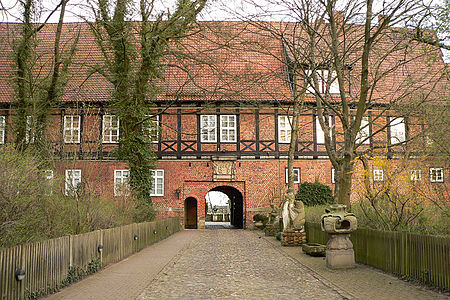
Ahlden House (German: Schloss Ahlden) is a stately home at Ahlden on the Lüneburg Heath in Lower Saxony, Germany. It was built in 1549, originally as a water castle on the river Aller, which has since changed its course. Nowadays the three-winged mansion is a private residence and is used as an arts auction house. It is principally known as the place of imprisonment of Sophia Dorothea of Celle, otherwise Sophie Dorothea of Brunswick-Lüneburg, wife of George I of Great Britain and the mother of George II of Great Britain.
Excerpt from the Wikipedia article Ahlden House (License: CC BY-SA 3.0, Authors, Images).Ahlden House
Große Straße, Samtgemeinde Ahlden
Geographical coordinates (GPS) Address External links Nearby Places Show on map
Geographical coordinates (GPS)
| Latitude | Longitude |
|---|---|
| N 52.759 ° | E 9.558 ° |
Address
Schloss Ahlden
Große Straße 1
29693 Samtgemeinde Ahlden
Lower Saxony, Germany
Open on Google Maps

